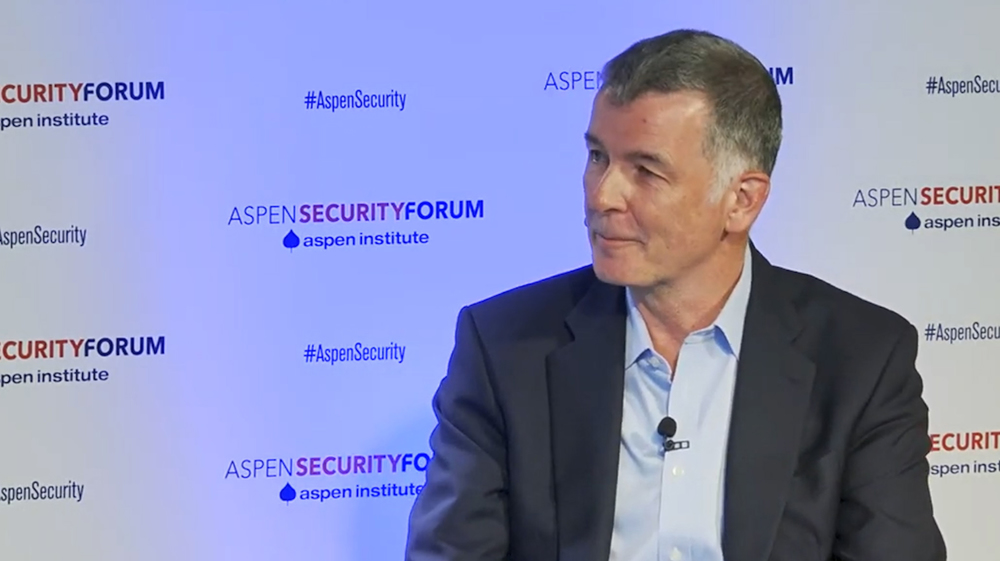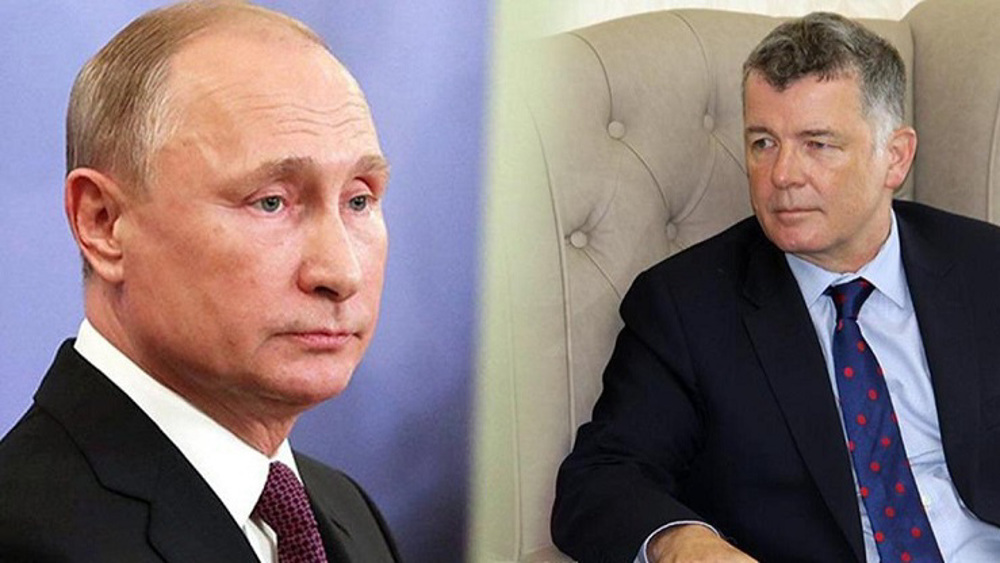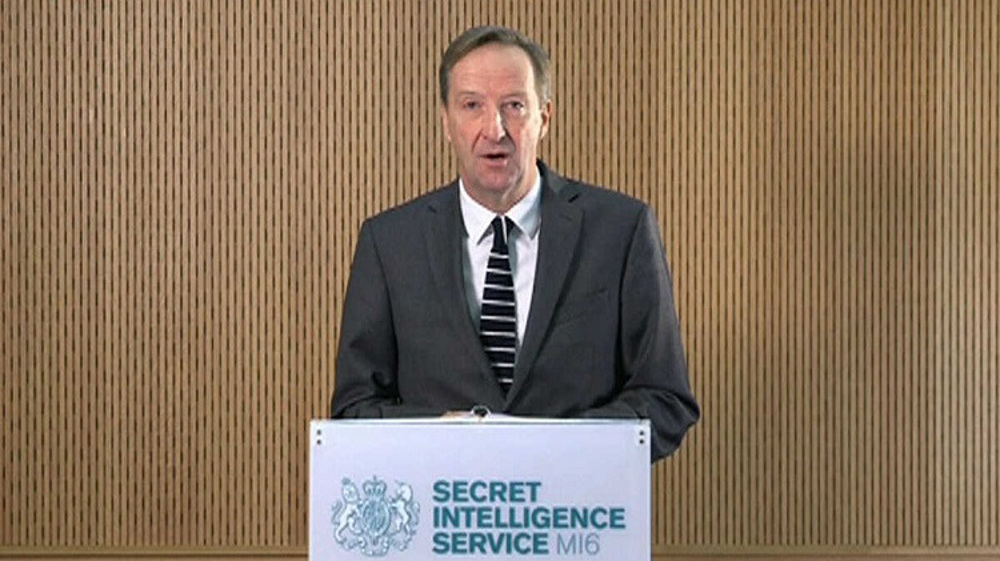China now top priority for MI6 intelligence agency, says Britain’s spy chief
Britain's spy chief says China has become the top intelligence priority for the country’s notorious Secret Intelligence Service (SISI), also known as MI6, surpassing counter-terrorism and other security-related issues.
Richard Moore made the remarks in an address to the Aspen Security Forum in Colorado on Thursday, adding that understanding how China pursues its strategic goals was a particularly complex challenge.
"If you go beneath that strategy in terms of how they implement, how they organize, what their tactical intent is, and then what are the capabilities they're building up -- that's a black box," Moore was quoted as saying.
"And there's a role for organizations like mine in helping British ministers and policymakers to understand that, so they can navigate this really complex, difficult relationship with the Chinese."
The MI6 chief also told the forum that the West needs to "win" in Ukraine in part because the Chinese leadership, as he claimed, is watching the war closely for lessons about Taiwan.
Moore also claimed that the Chinese are helping the Russians with Ukraine by buying their oil despite being “quite conservative about military assistance.”
Russia launched a military operation in Ukraine in late February, following Kiev’s failure to implement the terms of the Minsk agreements and Moscow’s recognition of the breakaway regions of Donetsk and Luhansk.
At the time, Russian President Vladimir Putin said one of the goals of what he called a “special military operation” was to “de-Nazify” Ukraine.
Two days prior to the military operation, Moscow had officially recognized the two breakaway regions as independent republics. Luhansk has already fallen under the full control of Russian forces.
Since the onset of the operation, the United States and its European allies have supplied billions of dollars worth of weaponry to Ukraine and imposed unprecedented sanctions on Moscow, despite Russia’s repeated warnings that it will only prolong the war.
Britain eyes critical mineral security with new refinery
In a separate development on Friday, Britain underscored the importance of securing rare earth mineral supply chains and diversifying away from dominant players, such as China, as it launched a refining facility in northern England.
Britain’s Business Minister Kwasi Kwarteng said the Pensana facility would be the second-largest magnet materials refinery outside of China, and its operations would begin at the end of 2023.
“With rising geopolitical threats, Britain needs to move quickly to secure the rare earth minerals necessary to supply our future industries,” Kwarteng said in a statement, citing the disruption of Russia’s military operation in Ukraine to supply chains more broadly.
“Most of these minerals are sourced from just a handful of countries, leaving Britain vulnerable to market shocks. We need to develop and strengthen our own supply chains to protect our national security into the future.”
The $173.07 million site in Saltend, North Yorkshire, is backed by the government’s Automotive Transformation Fund and is set to create 126 jobs.
Rare earth, such as neodymium, praseodymium, terbium, and dysprosium, are used to make magnets to fire up engines in electric vehicles and operate windows, offshore wind turbines, and other high-tech devices. China currently provides 98% of the world’s supply.
Other critical minerals include graphite, lithium, and silicon, commodities in which China is also the dominant supplier.
Efforts by Europe and the United States to reduce their overwhelming reliance on China and build a secure and independent supply chain for these key minerals have accelerated after pandemic shutdowns.
‘All wars have rules. All of those rules have been broken’ by Israel
VIDEO | Report flags India’s violation of rights of Rohingya detainees
Turkey's foreign minister meets Syria's de facto leader in Damascus
'Next to impossible' to rescue patients from Gaza's Kamal Adwan Hospital: Director
VIDEO | Vietnam current prosperity
Report blames gasoil exports for shortage at Iranian power plants
VIDEO | Hind Rajab Foundation names Israeli war criminals vacationing after Gaza genocide
VIDEO | Australians rally for Gaza ahead of Christmas festivities
















 This makes it easy to access the Press TV website
This makes it easy to access the Press TV website